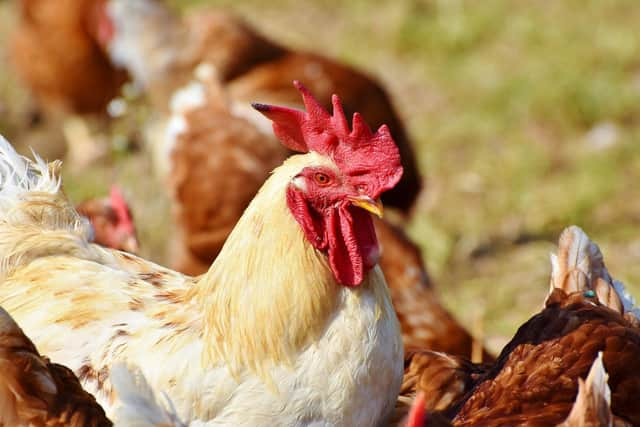First cases of bird flu infecting mammals in Northern Ireland - avian virus found in fox cubs
and live on Freeview channel 276
The Department for Agriculture, Environment and Rural Affairs (DAERA) has confirmed the positive results for highly pathogenic avian influenza (HPAI) or bird flu.
A DAERA spokesperson said: "HPAI has now also been detected in two fox cubs along with wild birds in the Portrush area. While this is the first time mammals have been confirmed as having influenza of an avian strain in Northern Ireland, it is not unexpected. There have been findings of AI in mammals over recent months across Europe, Great Britain, and the Republic of Ireland."
Advertisement
Hide AdAdvertisement
Hide AdThe most recent findings from Portrush were detected as part of DAERA’s routine disease surveillance, which confirmed the strain of the disease as H5N1 in both the fox cubs and wild birds.


DAERA is encouraging the public to keep their dogs on leads and keep pets away from carcasses, particularly in coastal areas. The public is also being urged to report any findings of dead wild birds through the DAERA website.
The Public Health Agency (PHA) has said that human infections with avian flu are rare as it is primarily a disease of birds – with the risk to the health of the general public being very low.
The PHA has advised not to pick up or touch sick, dying or dead poultry, wild birds or wild animals and keep pets away from them, avoid contact with surfaces contaminated with bird faeces, avoid untreated bird feathers (such as those found in the environment) and other bird waste.
Advertisement
Hide AdAdvertisement
Hide AdPeople are also advised to practice regular hand washing with soap and use of alcohol-based hand rubs.
The Food Standards Agency the risk to public health is very low from eating properly cooked poultry or eggs, subject to proper hygiene.
NI’s ban on poultry gatherings was lifted at the start of June. The measures were put in place last October to protect the poultry sector from bird flu.
Yesterday people were warned to avoid dead birds washed up on GB beaches as avian flu continues to ravage wild populations there. The UK Health Security Agency said the risk to humans is 'very low'.